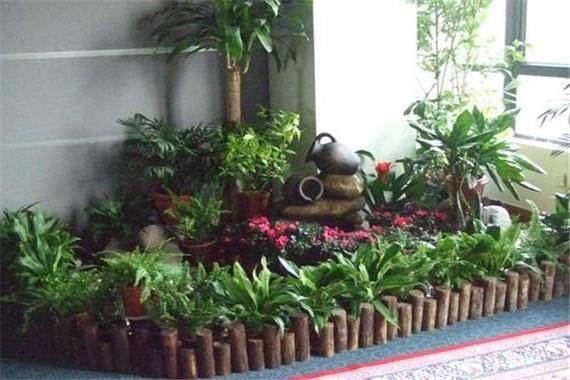1, home plant placement feng shui
Placing plants at home is a common way of decorating, not only to add a green atmosphere indoors, but also to bring a natural sense of comfort for the occupants. For feng shui, the placement of plants also needs attention. When placing plants at home, we should choose the right location according to the principles of feng shui.
We should pay attention to the type of plants. Different plants have different properties, so you need to consider their characteristics when placing them. For example, some plants have luxuriant growth, which can bring vitality and prosperous atmosphere to your home; while some plants have the effect of purifying the air, which can improve the quality of home environment. Therefore, when choosing plants, we can choose suitable varieties according to our needs and preferences.
The placement of plants also needs attention. According to the principle of feng shui, we can categorize plants into "yang" and "yin" attributes. Yang plants usually need sunlight and air circulation, so they are suitable for bright locations, such as the living room or balcony. Yin plants prefer cool and moist environments, so they are suitable for bedrooms or bathrooms that are relatively humid. We can also choose where to place plants based on their attributes. For example, some plants with exuberant growth are suitable to be placed in the doorway or next to the window, which can bring prosperity and wealth; while some plants with air purifying effect are suitable to be placed in the kitchen or bedroom, which can improve the quality of the home environment.
The number of plants is also something to pay attention to. According to the principle of feng shui, the number of plants should be odd, because odd number represents vigor and prosperity. So, we can choose odd numbers such as 1, 3, 5 and other odd numbers when placing plants. If the area of your home is small, we can choose small plants to place in order to avoid bringing a sense of oppression to the space.
We also need to pay attention to the care of plants. The health of the plants will also affect the feng shui of the home. Therefore, we need to water, prune and fertilize our plants regularly to keep them healthy and vibrant. At the same time, we also need to pay attention to whether the placement of plants is suitable for their growth needs, to avoid because the environment is not suitable to cause the plants withered and wilted.
The feng shui of plants at home is a matter of comprehensive consideration. We can choose the right varieties and placement according to the characteristics and attributes of the plants to create a comfortable, healthy and prosperous home environment. At the same time, we should also take care of the plants regularly to keep them healthy and vibrant. We believe that through reasonable plant placement, we can bring more blessings and good luck to our home.

2, home plants put which position is better
Home plants, both flowers and plants or potted plants, are a bright landscape of interior decoration. They can not only add life and beauty to the home environment, but also purify the air, regulate humidity, bring comfort and pleasant feelings. The location of plants is a matter of careful consideration.
We need to consider the light needs of plants. Most plants need plenty of sunlight to photosynthesize and maintain healthy growth. Therefore, it is vital to place your plants in a sunny location. For example, if you have a pot of flowers with brightly colored foliage, such as jasmine or roses, it is good to place them next to a sunrise window so that they can fully absorb the sunlight and maintain their bright flowers and healthy foliage.
We also need to consider the temperature and humidity needs of the plants. Different plants have different temperature and humidity requirements. Generally speaking, a location with the right temperature indoors is ideal. If your home is warmer, place your plants in a well-ventilated location to avoid overheating. Conversely, if your home is cooler, place your plants in a warmer location, such as next to a heater. Some plants that prefer higher humidity, such as ivy or ferns, can be placed in a location with high humidity, such as a bathroom or kitchen, to meet their growing needs.
There are also plants that require high air circulation. These plants usually need to be placed in well-ventilated locations to keep the air moving and fresh. For example, some common houseplants, such as hanging orchids and aloe vera, require high air circulation. Therefore, placing them in a well-ventilated location, such as next to a door or window or above a hallway, can help keep them growing well.
In addition to the above considerations, there are also some personal preference factors that need to be taken into account. Some people like to place plants in public spaces such as the living room or dining room to add life and beauty. While others prefer to place plants in their bedroom or study to bring in a peaceful and relaxing atmosphere. These personal preferences can be determined based on your habits and the layout of your space.
Placing plants in the home requires comprehensive consideration of the plants' light, temperature, humidity and air circulation needs, as well as personal preferences and spatial patterns. Only when you find the right location for plant growth and home decoration, can you let the plants play a big role in adding a natural and vibrant home environment.

